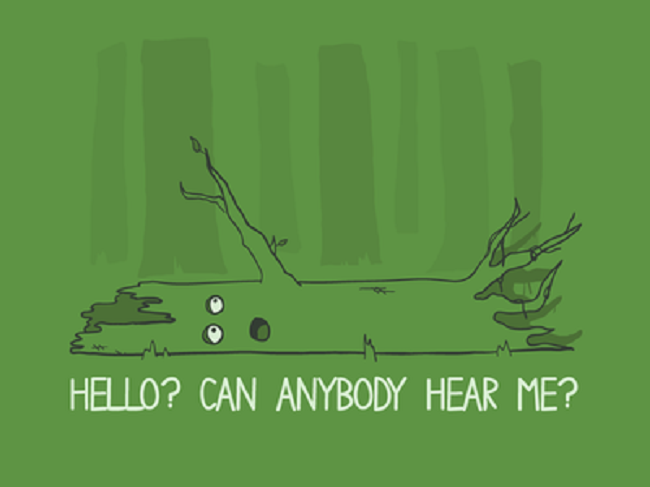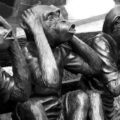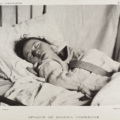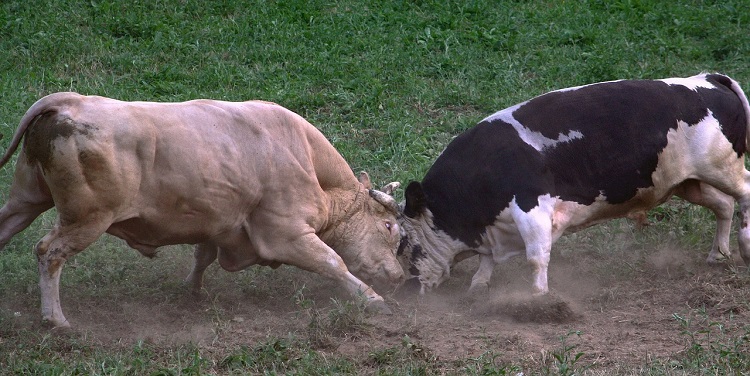Of Forests and Fallen Trees
If a tree falls in the forest and no one is there to hear it, does it make a sound? The age old philosophical riddle posited by George Berkeley and debated by philosophy students for generations has profound ethical connotations for medicine and life. At the root of this question is whether awareness predicates existence. If we are unaware of someone’s suffering, does suffering exist? Missing from the question, however, is to what degree our cognitive and emotional faculties influence our ability to perceive. Aside from outright sensory deprivation, does choice have a role in what can or cannot be perceived?
In the case of modern medicine, if the suffering is invisible to current diagnostic tests and intractable to medical therapeutics, it is not real. Indeed, whether cognitively or reflexively, every time a physician dismisses a patient’s complaint or prescribes an anti-depressant for pain, he denies the existence and veracity of their suffering. He denies the tree in the forest, because he does not see or hear it himself in the context necessary to recognize it – e.g. by currently available diagnostic technologies and taxonomies. Here, medical technology, and the physicians who wield the technology, assume an infallibility that precludes the existence of realities beyond their sight lines, beyond their control.
In many ways, it is as if we have lost the ability to recognize suffering by our common humanity, and instead, have adopted, perhaps unknowingly, a perverted medical ‘awareness predicates existence’ philosophy of care.
That’s a little harsh, right? Well, yes and no. How else does one explain why so many physicians can stand face to face with pure, unadulterated agony and dismiss it without so much as an attempt to uncover the cause and alleviate the pain? Callousness? Perhaps, but I don’t think so. Most who go into medicine do so with honorable intentions.
Certainly, there is some degree of cognitive dissonance and quite possibly, ignorance at play; but I think there is more to this issue than simply holding contradictory views and choosing the more palatable or the lack of understanding that ignorance would require. I think for many the suffering simply does not exist; not cognitively, not intuitively, not at all. It has been trained out them, and out of all of us, quite possibly, carefully and continuously by those who seek to profit from product sales or a particular political ideology. Whatever the cause though, in medicine, if the particular flavor of suffering is not identifiable by standard testing and does not fit into the big book of diagnoses, it is assumed to be feigned and, for all intents and purposes, feigned suffering does not exist. In these instances, suffering becomes the fallen tree in the forest with no sense apparatus to perceive its sound or recognize its reality.
I ask again: if we are unaware of human suffering, does it exist? Of course it does, just not within the boundaries of modern medical science.
Of Choice and Hubris
Perhaps a more salient question, can we ever be truly unaware of suffering unless we choose to be? Medical training paradigms aside, choice may be at the crux of this philosophical riddle. In everyday life, we choose to believe that our world exists continuously and beyond our recognition, whether we are actively perceiving it or not. It would be quite difficult to construct an alternate reality. Imagine the hubris needed to rest the existence of anything on one’s own perception of that object – a continuous perception, no less. And yet, in medicine, we do this all the time. We say with certainty that this or that disease exists or does not exist; that this or that patient is truly ill and suffering while others are not and are feigning their pain. We trust, wholeheartedly, the infallibility of the lenses through which we recognize suffering, even when this means ignoring our own sense perceptions of the human being in front of us. Those are choices, perhaps not entirely active and conscious ones, but choices, nevertheless.
In this regard, our behavior is akin to believing the world begins and ends according to our perception of it. That’s a pretty weighty task – being central to all existence; one I am certain no rational individual would admit to. Except that, this is what we do daily in medicine when we ignore the suffering of patients who have difficult, if not impossible, to diagnose and treat conditions. Rather than admit our fallibility, admit that trees, do indeed, fall in the forest absent our observance, we become the arbiters of reality. In doing so, we ignore the existence of their suffering, and more importantly, deny our common humanity.
I cannot help but wondering if it would not be easier to admit simply that trees do fall in the forest when we are not around; that existence is not predicated on our awareness, and that we don’t, in fact, know everything there is to know about medicine and medical science. It seems to have worked out okay for the rest of science. Oh, and if we can bring our common humanity back into the equation, who knows, we might even discover that we can relieve the suffering that we have been so keen to deny.
We Need Your Help
More people than ever are reading Hormones Matter, a testament to the need for independent voices in health and medicine. We are not funded and accept limited advertising. Unlike many health sites, we don’t force you to purchase a subscription. We believe health information should be open to all. If you read Hormones Matter, like it, please help support it. Contribute now.
Yes, I would like to support Hormones Matter.
This article was published originally on Hormones Matter on September 30, 2015.















Great article, Chandler! If only we could get every doctor in the country to read and emotionally absorb it.